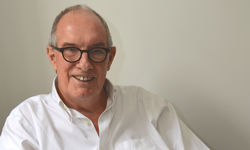The national press should be celebrating. The Daily Telegraph’s exposé of the misuse of the expenses systems by MPs, which won all the major accolades for journalism last year, is leading to a succession of fraudulent politicians being sent to jail.
Instead, the nationals are embroiled in the widening phone hacking scandal. This could see more journalists following News of the World’s royal reporter Clive Goodman in facing criminal charges, possibly ending up in prison with the dishonest MPs, as well as huge sums being paid to celebrities and politicians who had their phones hacked.
The tables have turned with politicians able to portray journalists as sleazy phone hackers in the wake of the drawn out allegations about the News of the World which finally led to the resignation of Andy Coulson as the Number 10 press secretary.
The Guardian wot won it?
Guardian editor-in-chief Alan Rusbridger was in no doubt about who should get the credit for Coulson’s downfall: "This is the result of first class investigative reporting by one Guardian reporter, Nick Davies, sustained over a very long period of time. From the moment he revealed the secret payout to Gordon Taylor in July 2009, it was obvious that Andy Coulson's position was untenable. But this is not the end of the story by any means. There are many outstanding legal actions, and uncomfortable questions for others, including the police."
Within the industry, there are conflicting views of the Guardian’s investigation into the News of the World. Those pro it claim it has shed light on the dark arts of tabloid journalists and exposed the close links between the Murdoch empire, the police and politicians. They argue that at long last it has created an opportunity to clean up unethical tabloid journalism. They also say that the Guardian and Davies should be applauded for being so dogged in the face of the intransigence of the News of the World’s publisher, News International, and at one time a “conspiracy of silence” on the matter by the rest of Fleet Street.
Those anti the Guardian, claim it has an agenda against Murdoch, which is both political and commercial. That it is exposing journalists to prosecution and encouraging politicians to impose new restrictions on the press. They also say the Guardian has a “holier-than-thou” attitude to phone hacking when it has itself used a fake fax and the stolen WikiLeaks material to obtain stories.
News International also believes the phone hacking story has been given legs by those media organisations, including the Guardian, the Independent, the Telegraph Media Group, Daily Mail and General Trust, the BBC and Trinity Mirror, which signed a letter sent to Business Secretary Vince Cable last October opposing Murdoch’s News Corporation taking full control of BSkyB, claiming it would make him too dominant in the British media marketplace.
The phone hacking scandal is a story that won’t go way and has been given impetus by NI’s decision to sack the News of the World’s former head of news Ian Edmondson in January, after new evidence came to light. BBC business editor Robert Peston says of the phone hacking affair: "Not to over-dramatise, this has all the potential for the newspaper industry to turn into its version of the MPs' expenses scandal."
No love lost
The furore over hacking has highlighted the often strained relations between the upmarket “quality” press and the “red-top” popular press. The tensions between them are demonstrated when they come together once a year under the same roof at the British Press Awards. Sometimes it ends in tears and even fist fights.
In 1999, when the Guardian won Newspaper of the Year, Neil Wallis, then editor of the Sunday People, stormed onto the stage, grabbed the microphone and said he found it a "shocking disgrace" the judges thought the broadsheets were better than the tabloids.
After the News of the World, then edited by Andy Coulson, was named Newspaper of the Year in 2005, some of the quality papers threatened to boycott the event, unhappy that one of the NoW scoops was a “kiss and tell” about David Beckham.
Ian Reeves, then editor of Press Gazette, who hosted the awards, says: "Some broadsheet editors felt hugely uneasy about what the NoW's victory said about British journalism. They saw the Beckham story as trivial and had the suspicion that huge cheques had been written."
Former editor of the Daily Mirror David Banks, who was also an assistant editor on the Sun, claims: “Relations between pops and qualities have always been a bit Upstairs, Downstairs. At the Press Awards, Quality Street sniffs and mumbles its discontent when the Screws or the Currant Bun do well, despite the fact that in between the sordid, sensationalist stuff, there’s also some laudable journalism. Tabloids, meanwhile, take also-ran status as a hideous insult and if they start the night throwing compliments they end it throwing punches.”
“The red-tops are scrappy street fighters; the qualities, by comparison, are missionary clergy with a desire to serve.”
The phone hacking affair has come at a time when self regulation and the Press Complaints Commission are under fire. The PCC has been criticised for what is now seen as its less than rigorous investigation into the phone hacking allegations against the NoW.
Last month, the PCC set up a Phone Hacking Review Committee, with a lay majority, to consider any new information on phone hacking that becomes available, and make recommendations to the Commission.
Desmond and the PCC
The other split in the ranks of the national press was Richard Desmond’s Northern & Shell decision in January to put its titles, including the Express and Daily Star, outside the jurisdiction of the PCC.
Most publishers support the PCC because they see it as vital in keeping government regulation of newspapers and magazines at bay. Losing Desmond increases the risk of statutory regulation.
Banks predicts that Desmond will return. “Desmond will eventually come back to the fold: the Mirror Group ‘accidentally’ quit the PCC over the Di in the Gym pictures because David Montgomery [then Mirror Group chief executive] originally felt that at least legislation would enable newspapers to see where the strict boundary lay. Then he changed his mind.”
He adds: “The tabloids’ inability to agree parameters and stick to them and the posh papers’ holier-than-thou desire to maintain an arms-length relationship have always weakened the way the PCC is perceived and the way it operates.”
The national press needs to act together to stop politicians restricting its freedoms. There are already rumblings over the treatment by the tabloids of Chris Jefferies, the landlord arrested by police and then bailed during the inquiry into the murder of Jo Yeates in Bristol, with politicians arguing for tougher reporting restrictions.
Financial Time’s editor Lionel Barber, giving the annual Hugh Cudlipp Lecture in February, warned: "In the final resort, failure to clean house at all news organisations would leave the mainstream media in Britain at risk of retribution in the form of statutory regulation. Many MPs are itching to retaliate for the humiliation of the expenses scandal, but statutory regulation would be a grave step in the wrong direction.”
Some, like Barber, see the phone hacking affair as a “watershed” for the tabloids and the chance for Fleet Street to finally clean up its act.
Banks says: “Phone hacking is not only illegal, it is despicable; it has dealt the severest blow to press freedom (and public trust) in decades. But press freedom is endangered by a press ruled by parliamentary censure. In any case, we already have enough laws of libel, defamation and contempt to sink a thousand sinning Suns.
“Fact is, the PCC is horribly weak and not proactive enough; needs an investigative arm and the ability to launch inquiries without complaints.
If we had a better bunch of politicians, we journalists would be dead meat.”
There is a danger of journalists turning on journalists. Barber, who in his speech accused the Telegraph of “entrapment journalism” over sending undercover journalists to pose as constituents of Vince Cable, soon found he was on the receiving end of stories in the Telegraph’s City diary.
Sky News political editor Adam Boulton sees a growing bitterness between journalists. He noted on his blog: "Two important sectors of our society now feel under a great deal of pressure, beset by plunging fortunes and public esteem: newspapers and politicians. As they go down they are turning in on each other with increasing viciousness - politician against journalist, politician against politician, journalist against journalist."
The image of the press as a whole has taken a battering. Society of Editors’ executive director Bob Satchwell says: “People might be forgiven for thinking that thousands of journalists were trying to access thousands of phones and that it is still going on. We need to return to a sense of proportion to avoid insulting the vast majority of journalists who knew they were not above the law.”
With the PCC so wounded by the phone hacking affair – Barber described it as having been “supine at best” in his Cudlipp lecture – and the departure of Desmond’s titles, some are nostalgic for a figure with the gravitas and diplomatic skills of the late Sir David English, editor-in-chief of Associated Newspapers, to unite the nationals.
Maggie Brown, former media correspondent of the Guardian and the Independent, says one of the problems with the national press is that it is divided into tribes: “Whatever title you work on, you are part of that tribe. The values of each paper are distinct in their own way and there is not much inter-tribe recruitment.
“The PCC investigation into phone hacking was flawed. There is no forum or single body where the national papers can get together to have a proper debate.”
A truce in the tribal warfare between the “street fighters” and the “missionaries” of the national press is required to repair the damage caused by the phone hacking affair and Desmond quitting the PCC.
Then national newspaper journalists could get back to putting bent politicians and criminals in jail – rather than each other.










